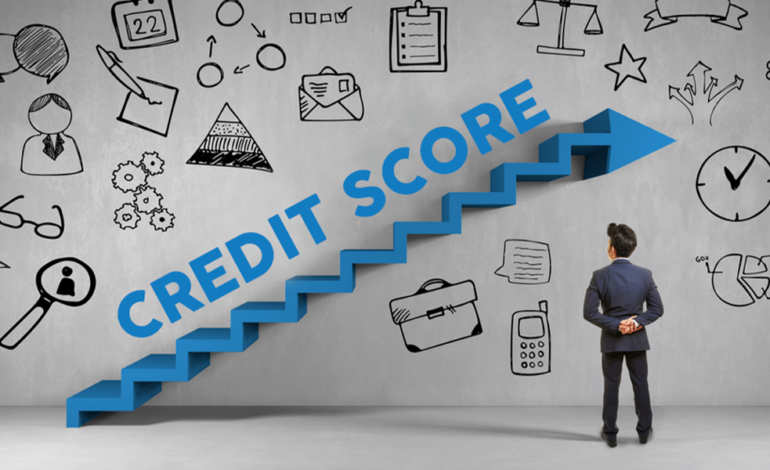
How Is Your Credit Score?
YBB Personal Finance
You may not realize how extensively the credit scores are used. Obviously, they are used for loan approvals – personal, auto, credit card, mortgage loans. But increasingly, they are used for utility & cell phone services, apartment rentals, insurance, job recruitments, etc & these uses are controversial. So, it’s important to maintain good credit. It’s a good idea to check your credit report periodically & before any planned major credit events. There may be some errors in your credit reports that can be fixed before your credit is turned down mistakenly.
Website “Annual Credit Report” now allows weekly (vs annually before) credit reports
post-Covid from each of the 3 major credit bureaus – Equifax, Experian, Transunion.
You must access these credit bureaus from the Annual Credit Report portal only, not
directly. Long credits reports will be provided without your score(s), but there may be a
small fee to see your credit score(s).
There are firms such as Credit Karma [now owned by Intuit (TurboTax, QuickBooks,
etc)] that provide unlimited free credit reports from Equifax & Transunion; such firms are
ad-supported but offer advanced credit monitoring & protection services for subscription
fees. Credit bureaus also offer subscription services for credit reports from them or from
multiple credit bureaus. Many banks & credit cards may include credit score data in their
statements.
Two common credit scores are FICO Score & VantageScore. Both now range from 300-
850 to avoid old confusion with different scale ranges. These firms also provide industry
specific scores. Institutions may have their own internal ranges for poor, good, excellent
credit scores. But one basic credit evaluation scale has “Poor” for less than 580, “Fair”
between 580-699, “Good” between 670-739, “Very Good” between 740-799, &
“Exceptional” above 800. The average American credit score is around 717.
Factors affecting credit scores include payment history, percent of credit lines used,
length of credit histories, credit use mix, & new credit lines/cards. Most hard credit
checks (for new cards, loans, apartment rentals) are reported & may stay in the credit
report for up to 2 years; soft credit inquiries (routine periodic checks; for promotional
credits, loans, insurance; by employers; your own checks) aren’t reported. To establish
credit histories, minors & some adults may have to become authorized users on
relatives’ or friends’ cards, get secured or prepaid cards, or have cosigners for card/loan
applications. Beware that cosigners are unconditionally responsible for defaulted loans –
even when the primary borrower becomes eligible for waiver, is disabled, or dies.
Years ago, credit reporting for joint accounts were done only for the primary card
holders. This caused huge problems for many families when the husband, typically the
primary account holder, passed away & the wife had basically a blank credit history.
Laws were changed so that credit reporting now includes both joint account holders, &
in some cases even the authorized users.
If you are denied credit, you can request reason(s) but the response may be very
generic & nonspecific. Delinquencies & defaults remain on your credit report for up to 7
years. For a defaulted loan, if you pay even $1 in the default period, that may restart the
loan clock. Delinquent loans are often written off & sold to 3rd parties for cents on a
dollar, so you aren’t paying the original lender; you may be able to negotiate a much
lower lump-sum payoff. Bankruptcies remain in the credit report for up to 10 years.
Many organizations may claim to fix your credit but avoid them if those are for-profit &
have high fees.
There have been several data breaches at companies or institutions & they may offer
free credit monitoring services for 1-3 years. If you are concerned about the safety of
your credit, consider “freeze” or “lock”. Credit “freeze” is harder, free, & covered by law.
Credit “lock” is an optional & convenient service provided by credit bureaus, often for-
pay. While these may be done online, by phone, or by mail, expect lots of questions
about identity etc. You may be given a PIN for easier access in future. Both will prevent
opening unauthorized new accounts but also general credit report access. So, you have
to unfreeze or unlock the credit report before any major financial event, & then reset
“freeze” or “lock”.
There are reasonable exceptions under credit “freeze” or “lock”. Basically, other credit
bureaus, law enforcements, collection agencies, etc can access credit reports whether
frozen or locked, so one cannot do fishy stuff under the cover of credit “freeze” or “lock”.
For more information, see https://ybbpersonalfinance.proboards.com/